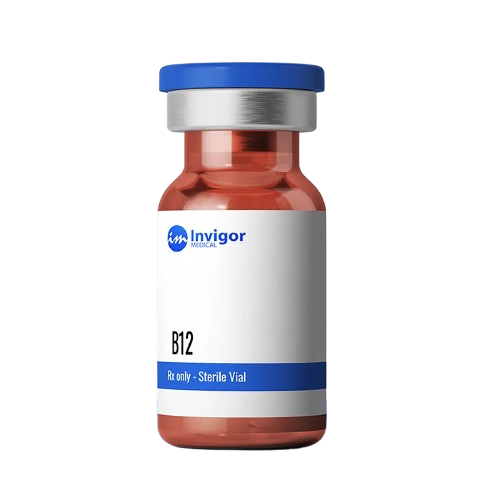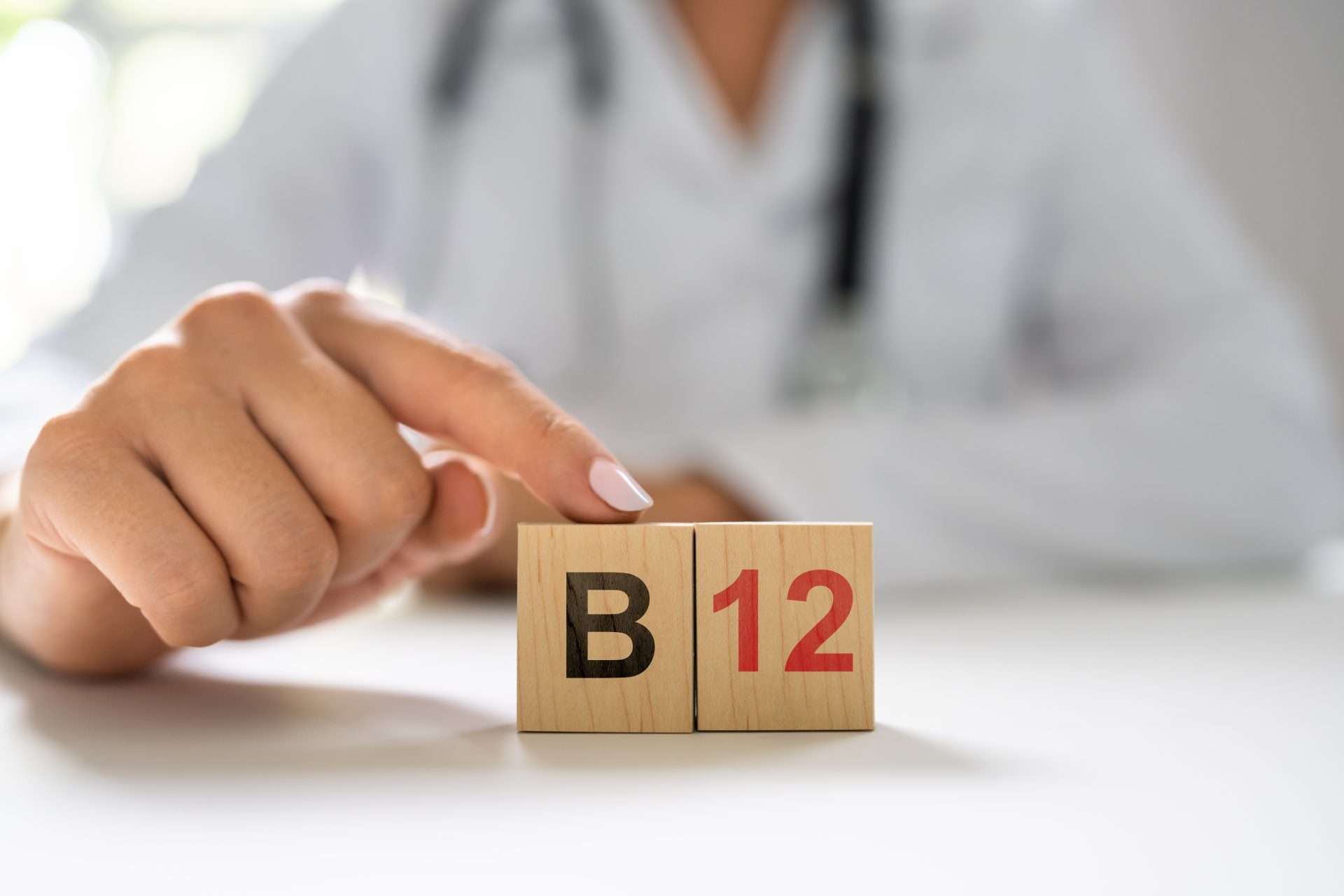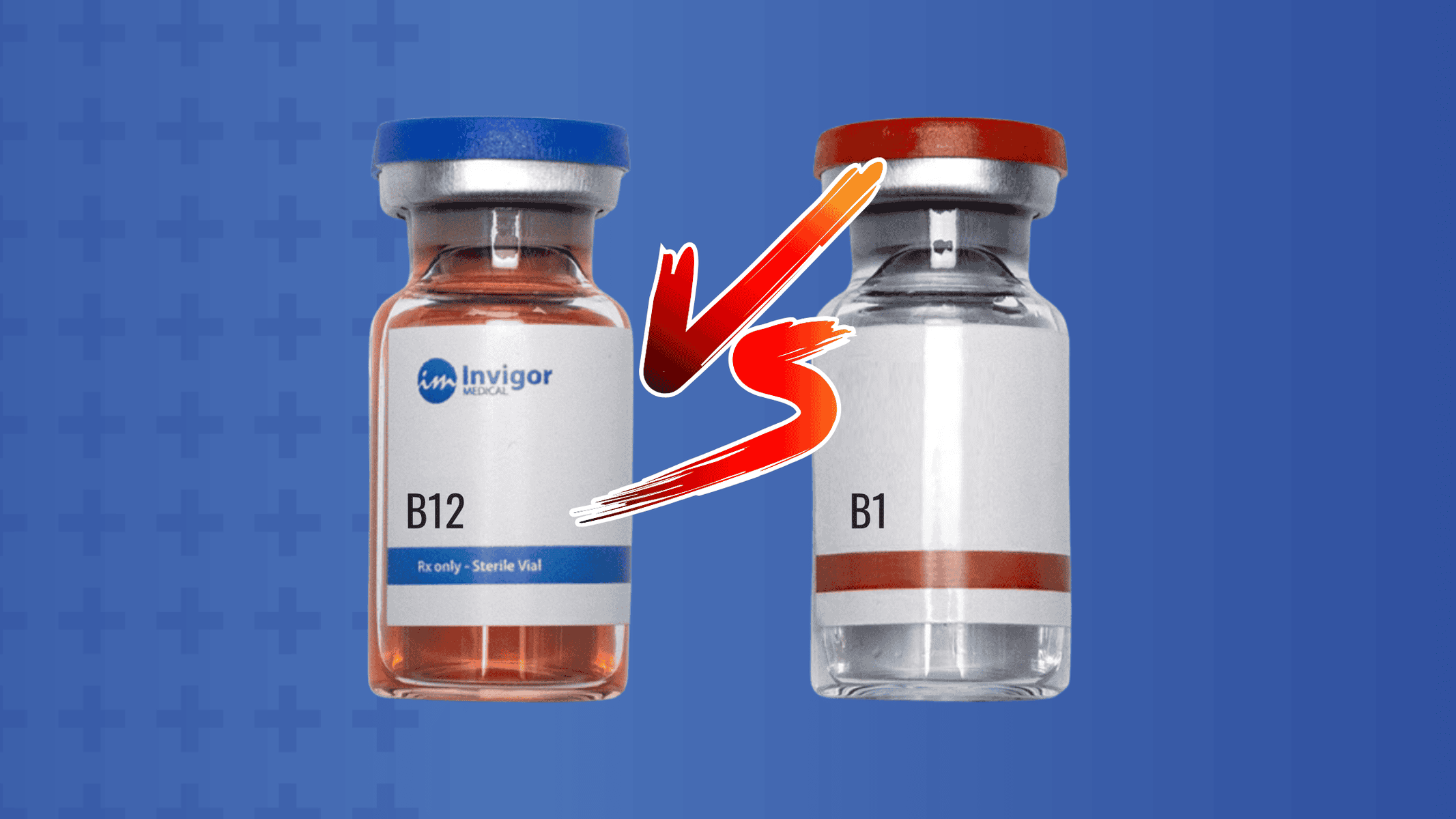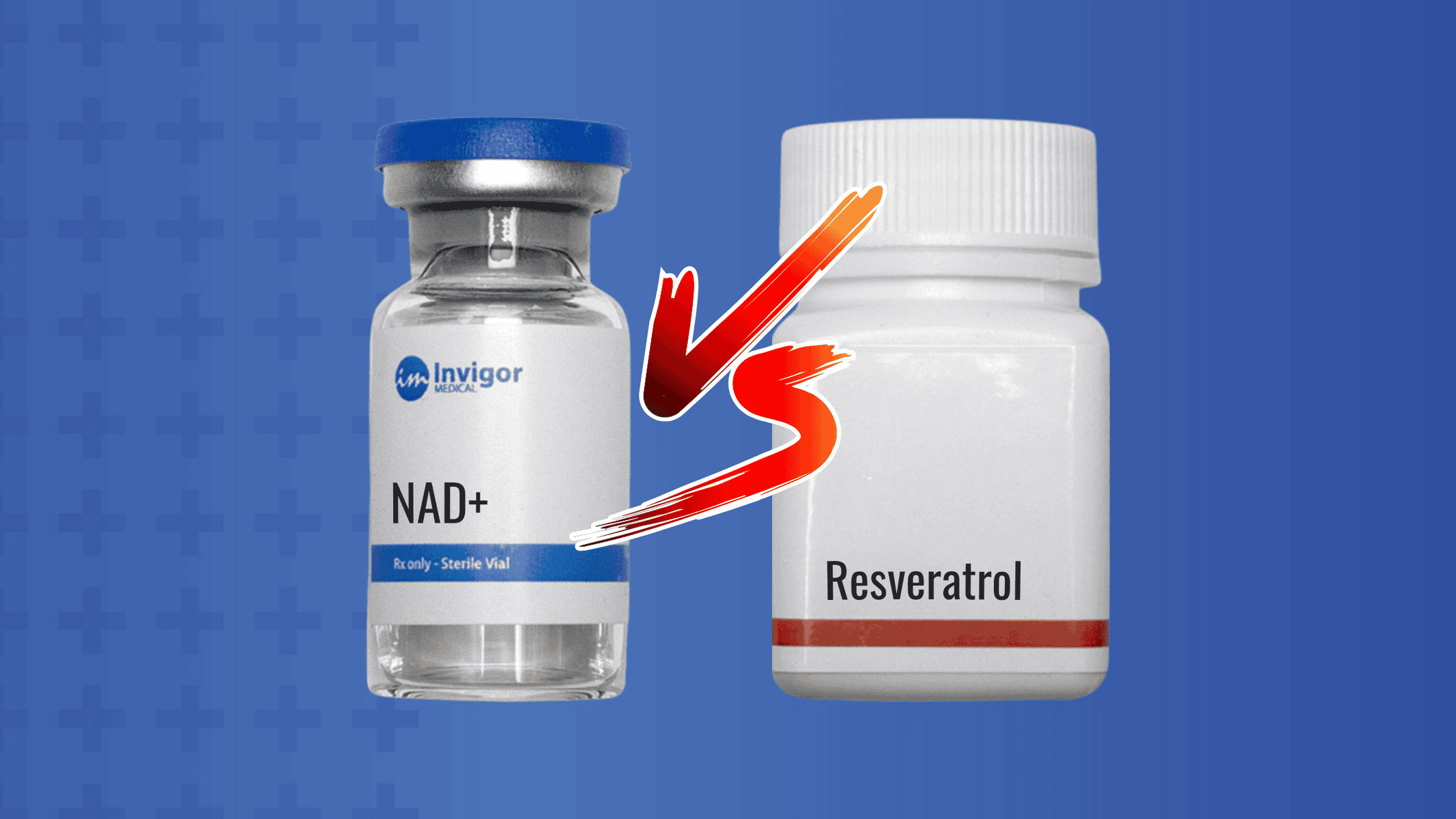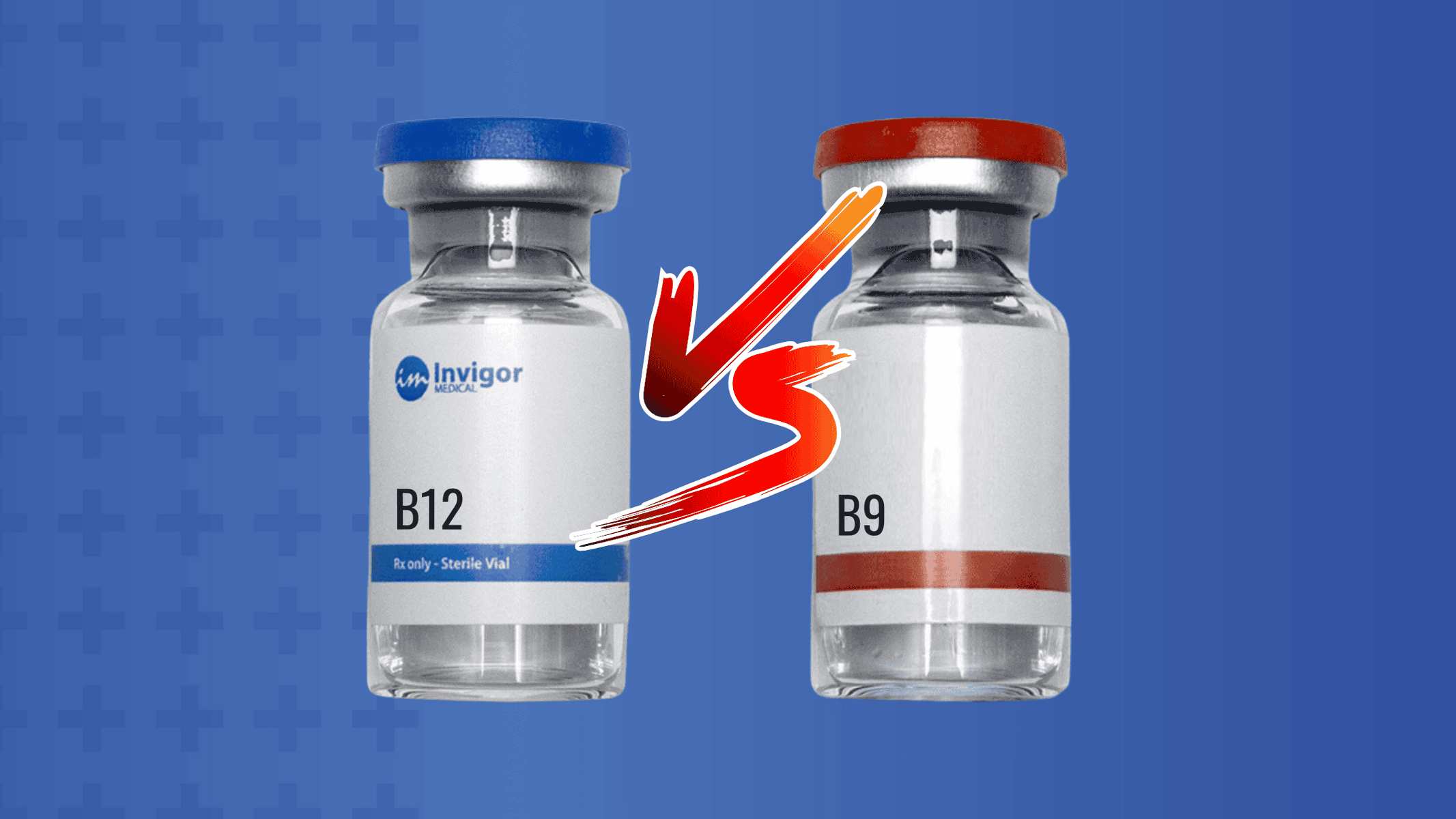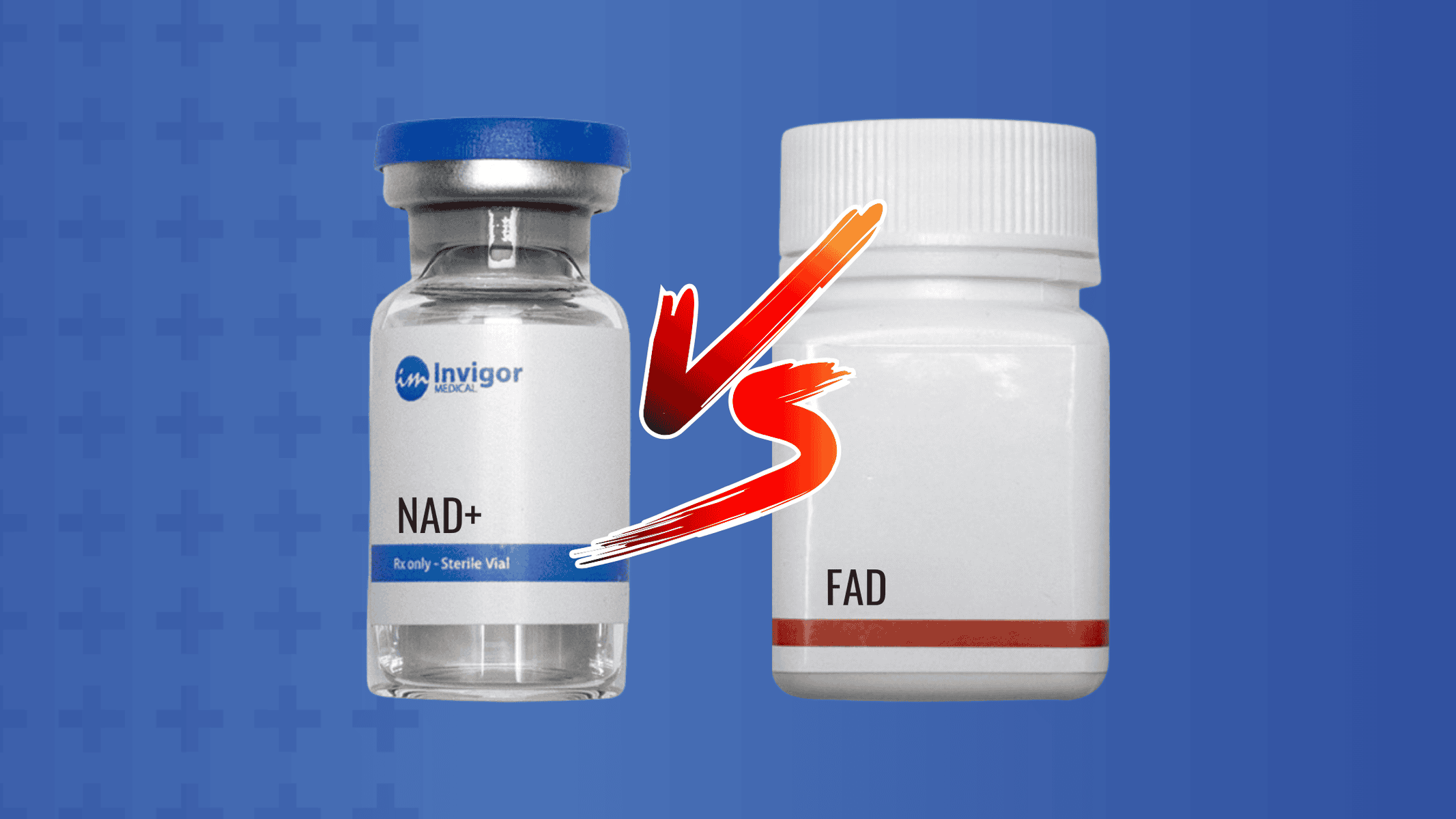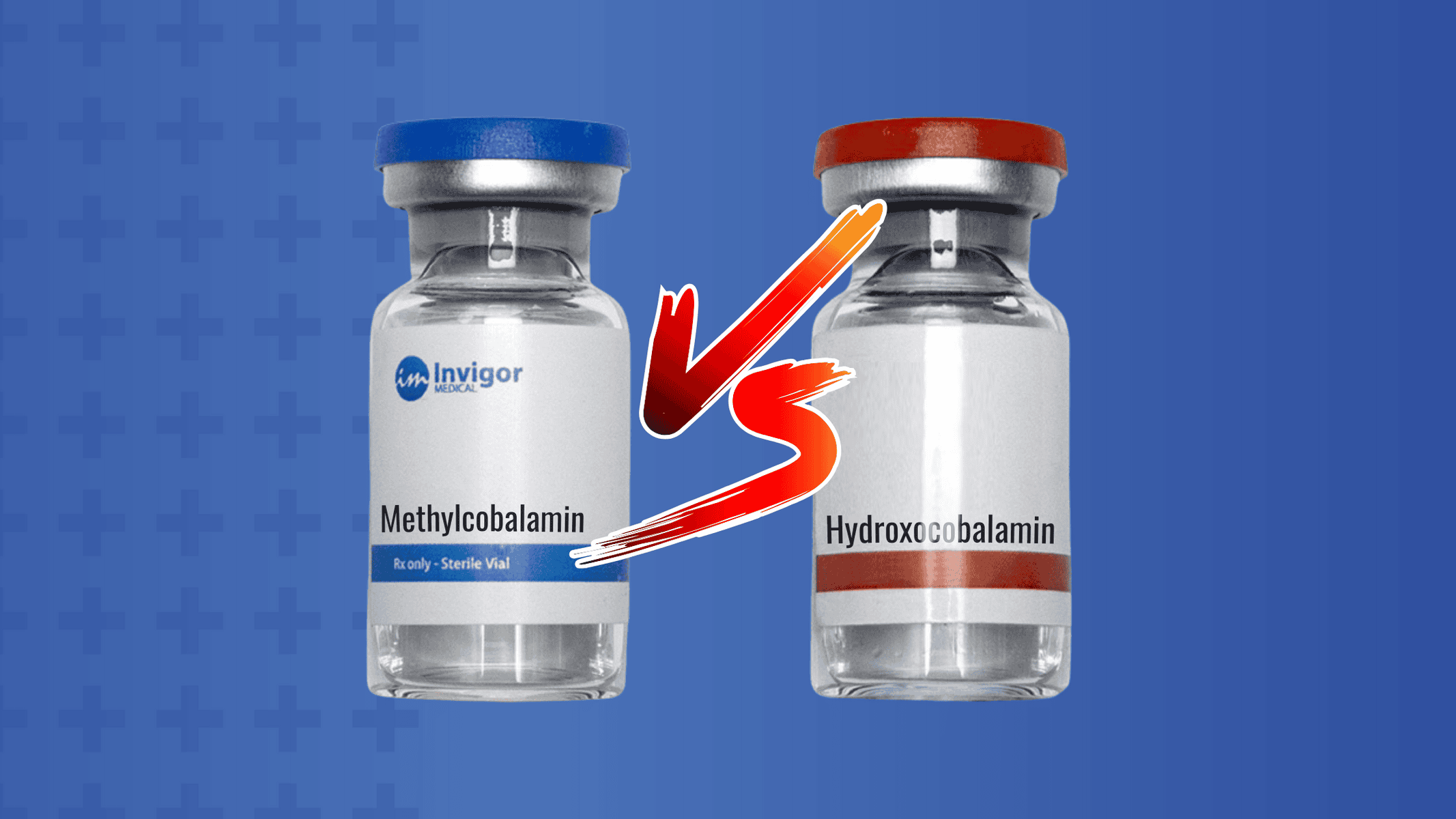A Vitamin B12 shot is typically recommended for people with a presumed vitamin B12 deficiency. Vitamin B12 deficiency is relatively common, affecting about 6% of people under the age of 60 and 20% of those over age 60.1 In most people, B12 deficiency is mild, and the symptoms are nonspecific.2
Vitamin B12 is essential to produce red blood cells and to metabolize fats and carbohydrates. Lack of vitamin B12 can cause anemia and make it harder to get energy from food. This can cause low energy, fatigue, weakness, brain fog, and other symptoms.3
If you have a vitamin B12 deficiency that is causing anemia and other symptoms and are unable to absorb oral vitamin B12 supplements, your doctor may prescribe vitamin B12 injections. If this is the case, you should notice an improvement in your symptoms within a few days.
Table of Contents
Why is vitamin B12 deficiency so common?
The absorption and metabolism of vitamin B12 is a complex process that puts large groups of people at risk for vitamin B12 deficiency.
Factors that put people at risk for vitamin B12 deficiency include the following:
- Being over age 75
- Having decreased stomach acid
- Taking antacids frequently
- Having an autoimmune condition or inflammatory disease that affects the stomach
- Taking high doses of folic acid
- Having stomach surgery
- Taking metformin for more than four months
- Consuming a vegan or vegetarian diet
- Consuming excess alcohol
If your vitamin B12 deficiency stems from an inability to absorb it from your stomach, oral supplements will not be helpful, and your doctor will probably recommend vitamin B12 injections.
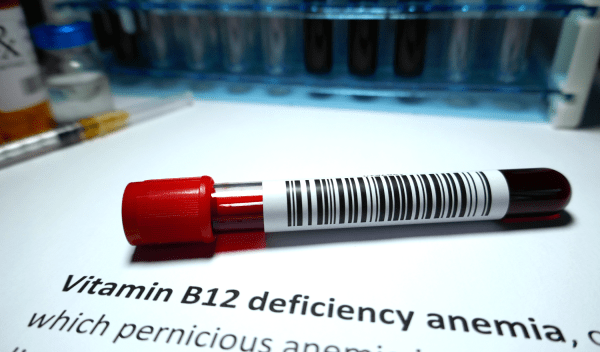
How do you get vitamin B12 deficiency?
Vitamin B12 is a water-soluble vitamin that is naturally present in animal-based food products, fortified processed foods, and dietary supplements.
The following foods are high in vitamin B12:2
- Meat, especially organ meats
- Eggs
- Fish
- Dairy products
- Nutritional yeast
- Fortified cereals
- Fortified non-dairy milk
The U.S. Department of Health and the Institute of Medicine recommend that all adults who are not pregnant or lactating take 2.6 micrograms of vitamin B12 daily. In the United States, the average intake is 3.4 mcg per day, which means that the average person who eats an omnivore diet is at low risk for vitamin B12 deficiency.4
According to the National Institutes of Health, the Food and Nutrition Board (FNB) did not establish an upper limit for vitamin B12 because it has low toxicity and is considered safe, even at large doses.2
If you have difficulty absorbing vitamin B12 from your diet or a supplement, vitamin B12 shots are used to replenish your vitamin B12 levels. Injections bypass the stomach, restoring vitamin B12 levels. Since vitamin B12 is a water-soluble vitamin, the excess is excreted in the urine.
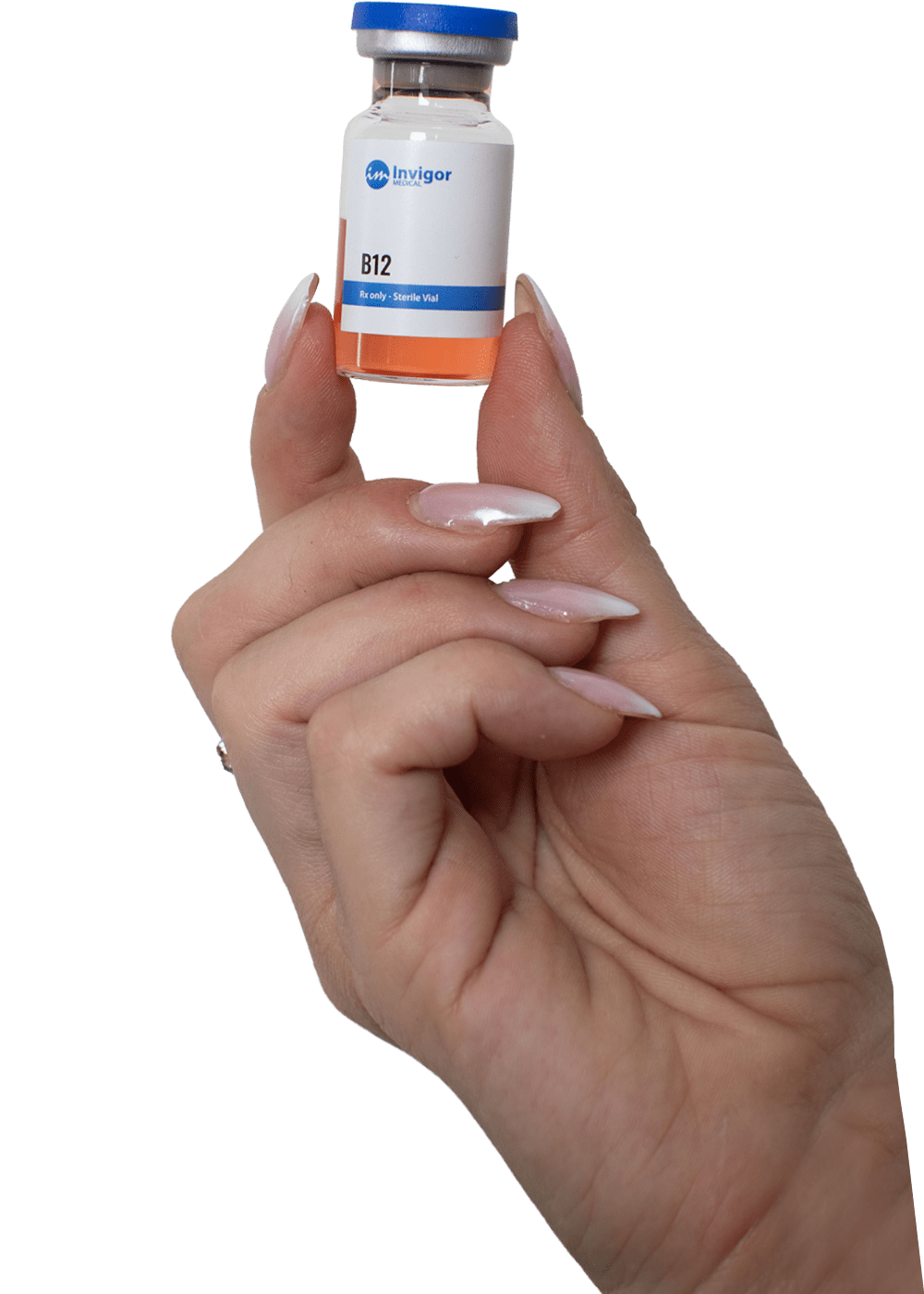
What does vitamin B12 do in your body?
Vitamin B12 has some important roles in the body, including:1
- Helping to produce energy by converting food into glucose
- Maintaining healthy nerve function
- Making DNA, the genetic material in all cells
- Helping to form red blood cells
- Helping enzymes to function as a cofactor
- Controlling homocysteine levels
Vitamin B12 deficiency can cause several health problems, including anemia, nerve damage and dysfunction, and neurologic symptoms such as memory loss, difficulty concentrating, and mood disorders.
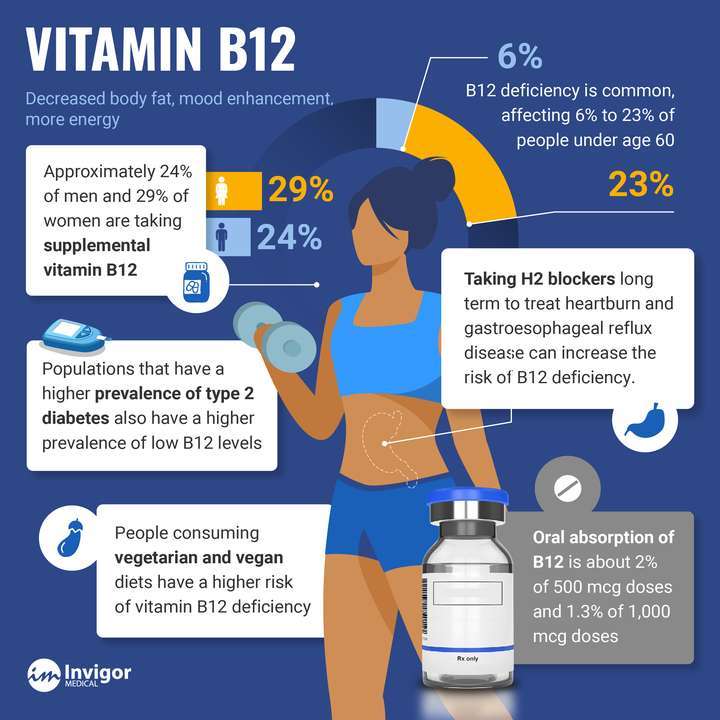
How long after B12 injections will I feel better?
If you have a vitamin B12 deficiency, you should notice an improvement in a few days as your body begins producing healthier red blood cells. It may take several weeks to feel the full effect of vitamin B12 supplements.
How do you feel after your first vitamin B12 shot?
You are not likely to notice any difference in your energy level right after your first injection. It takes a few days for healthy red blood cells to be produced.
Are vitamin B12 supplements good for everyone?
If you have any of the following conditions, speak with a healthcare provider before supplementing with vitamin B12 in any form:
- Eye problems or Leber’s disease
- Kidney or liver disease
- Iron or folic acid deficiency
- An infection
- Receiving any medication or treatment that affects the bone marrow
Vitamin B12 can also interact with some medications, including stomach acid inhibitors and metformin. For people without contraindications to vitamin B12 supplementation, vitamin B12 supplementation has potential benefits that outweigh the risks.

What are the benefits of vitamin B12 shots?
Healthy red blood cells are essential to carry oxygen to your body cells and remove carbon dioxide. If your vitamin B12 levels are suboptimal, your red blood cells become larger and more oval. This change in shape affects how well your red blood cells can do their job. A lack of healthy red blood cells is called anemia.5
Symptoms associated with anemia include:
- Fatigue
- Pale skin
- Cold fingers and toes
- Weakness
- Dizziness
- Shortness of breath
- Palpitation
- Sore, glossy tongue
Restoring healthy vitamin B12 levels is likely to reverse these symptoms. If you are concerned that you may have a vitamin B12 deficiency, contact one of the healthcare professionals at Invigor Medical to learn whether vitamin B12 injections are right for you.
Conclusion
Dispelling myths around the efficacy and onset of action for Vitamin B12 shots highlights their importance in managing deficiencies and enhancing overall health. For individuals seeking to buy Vitamin B12, understanding the swift and impactful benefits these injections can provide is essential. Whether looking to boost energy, improve cognitive function, or address specific health concerns, opting for Vitamin B12 shots can be a wise choice. Explore Invigor Medical for detailed insights and options to purchase quality Vitamin B12 injections.

